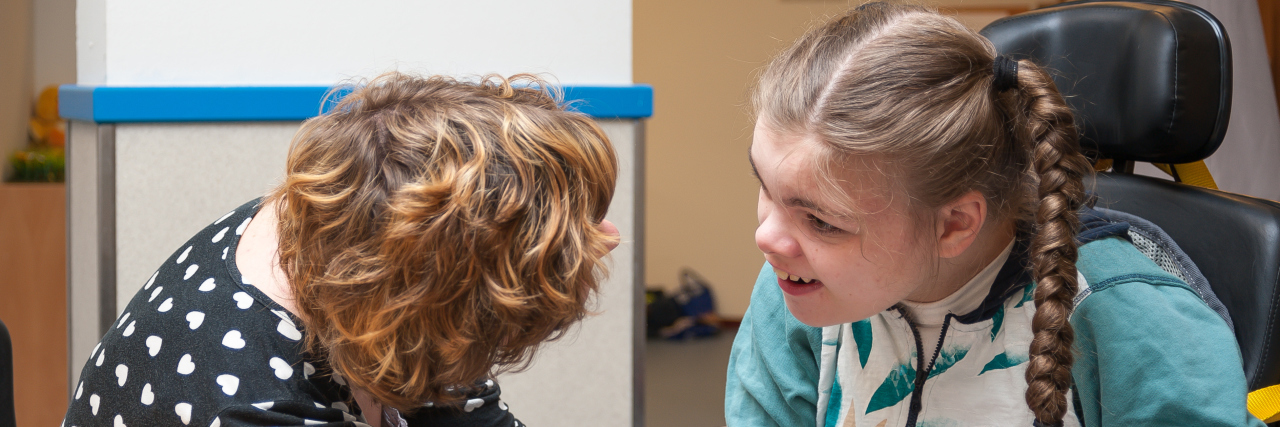Trusting your child to the care of someone other than a family member is a big step, no question about it. For some, it can be a leap of faith, especially if you’re way too analytic and meticulous like I am.
• The Mighty’s Caregiving Toolkit
I have to be honest. I’m never really 100 percent confident all the time that my son, Ben, is OK with his caregiver. It gets really close to 100 percent but it’s never quite there. How could it? They’re not there 24/7 like I am.
But do I worry that something “bad” could happen? Definitely not.
So is it a question of trust? Sometimes, because everyone can have a bad day.
So why do we leave Ben in the care of others?
Well, for lots of reasons. First, he doesn’t want me or my wife, Jan, in his face all the time. He’s an adult now and no adult wants their parents in their space much of the time. Even if he were younger, he deserves his freedom and independence just as much as anyone. There is no difference there.
Second, because Jan and I can’t do it all the time. It’s not good for us physically or emotionally, and as we get older the body doesn’t respond like it used to and there’s not much we can do about that. Ben needs people around him to be bringing their best. If we’re exhausted, that can’t happen.
And, finally, if nothing else, Jan and I need to continue to develop our relationship. We need our “alone” time to go out or get away for a few days. Whatever it happens to be. Everyone does.
OK, so if it’s good for Ben and it’s good for us to have a caregiver in our life, what’s the problem?
In Ben’s case, there are many details to know and follow so not everyone is suited, and since Ben is nonverbal, this can add another layer of complexity to his care and support. For other families, it could be complex medical needs or behavioral issues.
But if you assume you could find someone to meet your needs, how do you get to the point of trusting them to do all the things they’re supposed to, especially when you’re not there? This is what we’ve learned:
1. Before you make a hire, do thorough reference checks.
In fact, you should ask for four references. That may stump some people, but the reality is that every reference an applicant provides will usually only have great things to say. So the fourth reference can often provide you a different perspective.
2. Once you’ve made the hire and the honeymoon period is over, observe your child’s reaction when your caregiver is around.
Watch for any changes in behavior. Get more in tune with how your child responds, especially if he/she is nonverbal or shy.
3. Look for sincerity and authenticity in the words you caregiver uses and how they interact with your child.
You don’t need to be paranoid or suspicious, but over time, you will get good at seeing through any phony words or actions.
4. Install webcams in your home.
Really good ones that are secure and can be accessed from anywhere. Of course, make sure your caregiver knows about them. Don’t be sneaky. Webcams are there for their support if they need help and can give you the ease to “check in” whenever you need. They’re not for spying, but they can allow you to see how things are.
5. Check in frequently with your caregiver.
Maintain a regular, daily conversation whether live, by phone or by text. Also, have family members stop in occasionally as a resource to your caregiver and as another way to check that things are going OK.
Trust is not automatic. It takes time. But once it’s there, you will feel energized and freer.
Learn more at Soaring Families.
Getty image by Martinbowra

